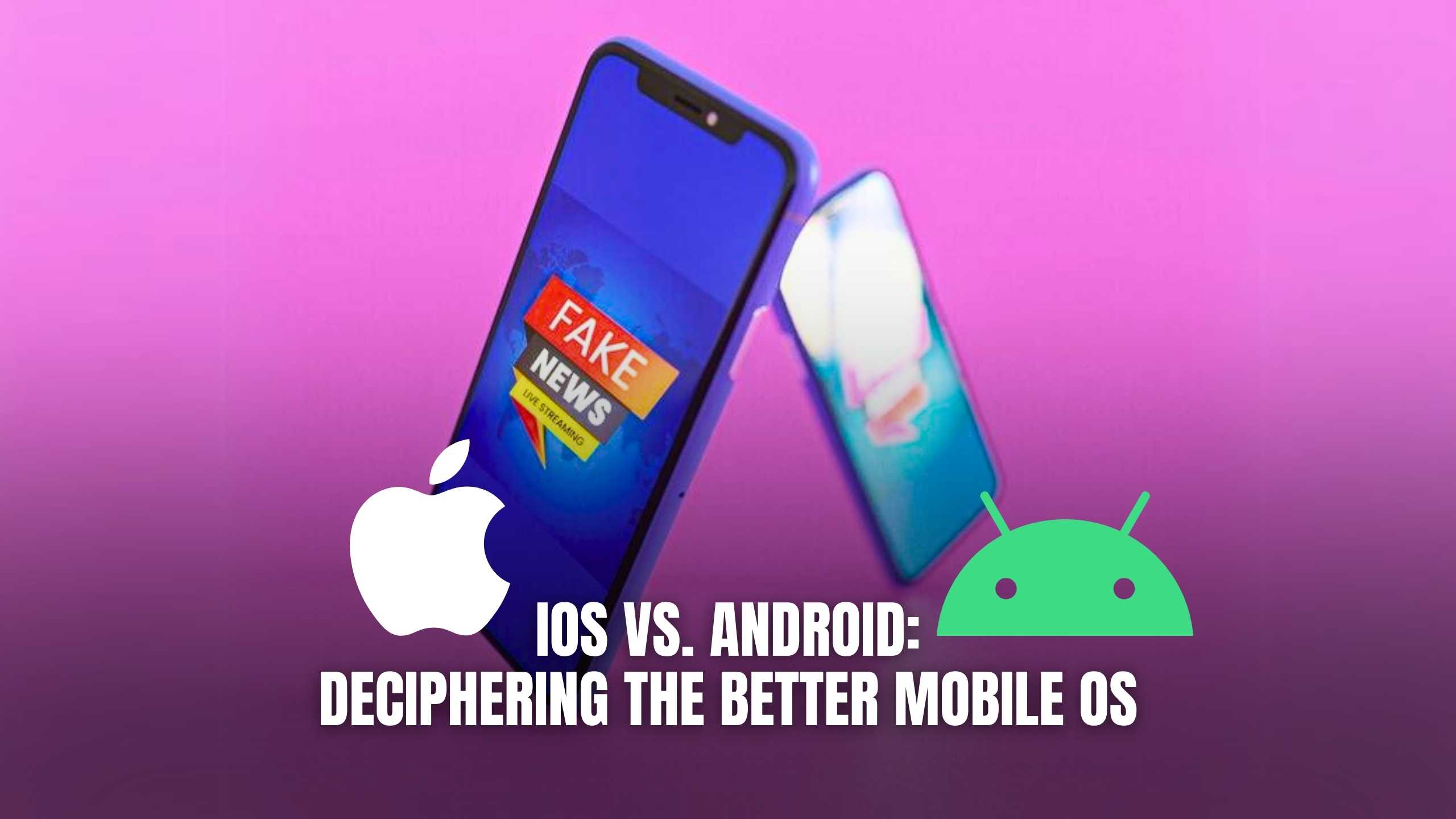iOS vs. Android: Deciphering the Better Mobile OS


iOS vs. Android: Deciphering the Better Mobile OS
In the ever-evolving landscape of mobile technology, the debate between iOS and Android has been a perennial one. Choosing between these two dominant mobile operating systems involves considerations of user experience, customization, and ecosystem integration. Let’s delve into the intricacies of iOS and Android, deciphering the nuances that make one stand out over the other.
Understanding User Experience
iOS: Seamless Integration and Intuitive Design
iOS, exclusive to Apple devices, is renowned for its seamless integration across the entire Apple ecosystem. The user experience is characterized by a clean, intuitive design and consistent performance. The App Store’s stringent guidelines ensure a curated selection of high-quality applications.
Android: Customization and Diversity
Android, on the other hand, offers a more customizable experience, allowing users to personalize their devices extensively. The Google Play Store boasts a vast array of applications, reflecting the diversity of the Android user base. With a range of device options from various manufacturers, Android provides flexibility in terms of hardware.
App Ecosystems: Apples and Androids
iOS: Exclusive Apps and Timely Updates
The iOS App Store is synonymous with premium, exclusive applications. Developers often release their apps on iOS first, taking advantage of the consistent hardware and software environment. Apple’s commitment to timely updates ensures that users receive the latest features and security patches promptly.
Android: Open Source and Diverse Selection
Android’s open-source nature fosters innovation and a diverse range of applications. The Google Play Store accommodates apps catering to different preferences. However, the multitude of Android devices can result in variations in software updates and app compatibility.
Device Preferences and Customization
iOS: Unified Hardware and Software
Apple’s closed ecosystem ensures a harmonious relationship between hardware and software. iOS devices are meticulously crafted, offering a consistent and optimized performance. While this limits customization options, it ensures a reliable and polished user experience.
Android: Hardware Diversity and Extensive Customization
Android’s strength lies in its hardware diversity and customization options. Users can choose from a plethora of devices with varying specifications. The extensive customization options, including third-party launchers and widgets, cater to users who value personalization.
SaaS Tools to Enhance Your Mobile Experience
To complement the iOS and Android experiences, consider integrating the following SaaS tools into your workflow:
- Notion: A versatile workspace tool for collaboration and organization.
- Trello: Streamline project management with a visual and intuitive platform.
- LastPass: Enhance security by managing and securing your passwords effortlessly.
- Zoom: Stay connected through seamless video conferencing and collaboration.
- Grammarly: Elevate your communication with advanced grammar checking and writing suggestions.
Conclusion
Choosing between iOS and Android ultimately depends on your preferences, priorities, and the ecosystem you are most comfortable with. Each OS has its strengths, and the decision hinges on your individual needs. Whichever path you choose, Subscribed.fyi is here to streamline your SaaS subscriptions. Sign up for free and unlock exclusive deals on a plethora of tools, helping you make informed decisions and enhance your mobile experience.
Elevate Your Mobile Experience with Subscribed.fyi!
Explore exclusive deals on essential SaaS tools at Subscribed.fyi Deals. Sign up today and unleash the power of efficient SaaS subscription management. Your journey to a seamlessly integrated mobile experience starts here!
Relevant Links:








